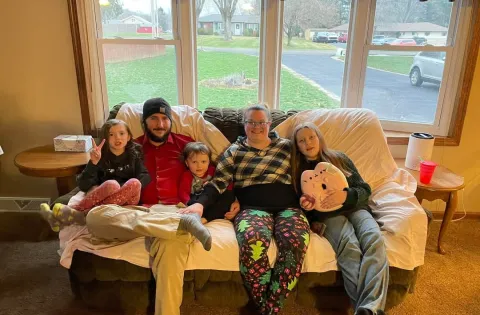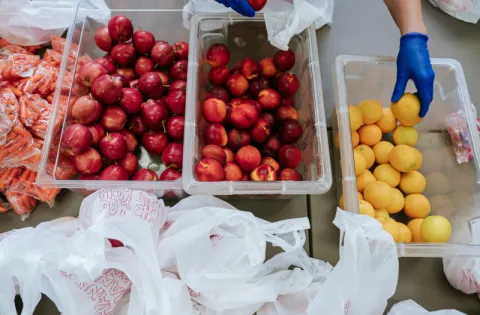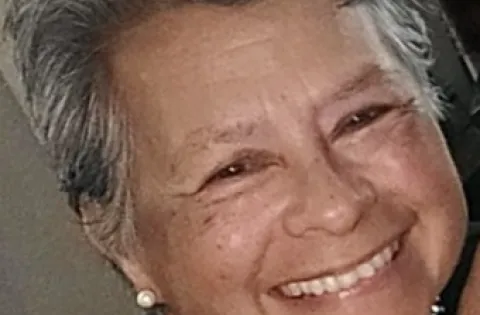A hospital’s story of ending summer hunger in South Carolina
Medical University of South Carolina (MUSC) is a major hospital and teaching institution right in the heart of Charleston. Nearly 200,000 patients a year will walk through its doors, and nearly 3,000 students emerge from those same doors as certified health professionals. Over 12,000 employees meet the needs of these students, patients, family members and more. The expansive campus hums with activity all day long.
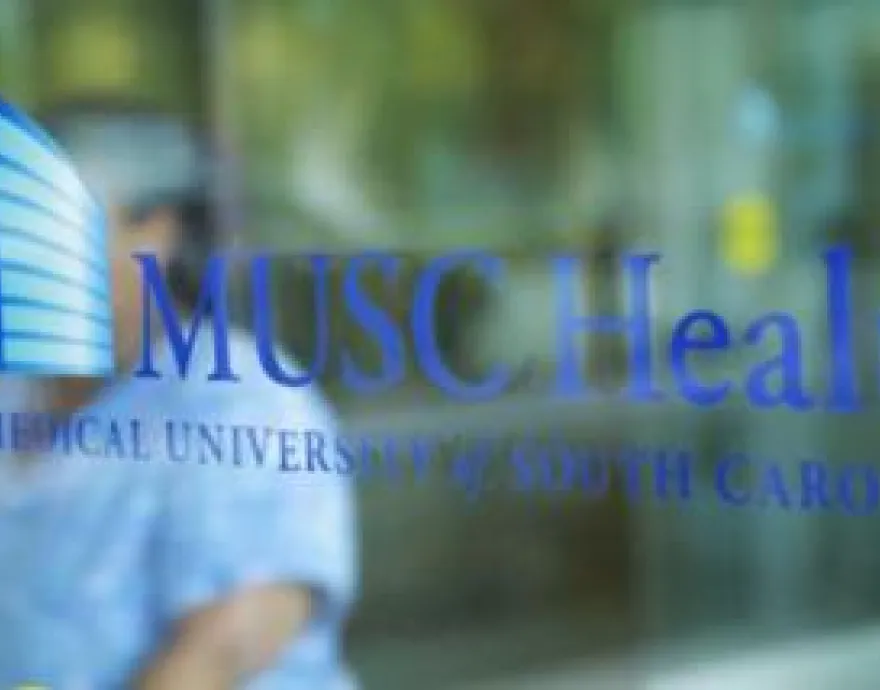
Many families seeking help at MUSC come from Charleston’s destitute neighborhoods, or from South Carolina’s impoverished countryside — the low country. Children sit in waiting rooms, awaiting treatment for themselves or family members. They approach front desk staff for food, seek out their favorite nurse because they know she keeps snacks on hand, or they get by all day on a bag of chips and a soda — the only thing their parents can afford.
Debbie Petitpain knows that families shouldn’t have to choose between healthcare and feeding their kids. She’s a Sodexo Wellness Dietician at MUSC, and recognized that there was a solution to the terrible problem of childhood hunger within the hospital. She approached hospital leadership with a plan to launch a free summer meals program for kids at MUSC.
“Food is medicine.”
In an institution this big, one person can light the spark, but they can’t make lasting change by themselves. It took a network of individuals from the hospital’s senior leadership to the people serving food in the cafeteria to champion this idea and launch the summer meals program.
Renotia Flood, a hospital “concierge”, is charged with helping the families of patients with anything they need as their loved ones undergo treatment. She’s worked at the hospital for over a decade and has been helping families out of her own pocket for just as long. Whether it’s buying a winter coat for a patient’s child that walked in from the cold shivering, storing granola bars in her desk drawer for hungry kids from poor families that sit in the waiting room the entire day, or buying a chicken dinner with all the sides for a family she knows hasn’t had a complete meal in days — she’s done it all. When she heard about the launch of the summer meals program, she immediately called Debbie to get all the details so she could be ready to direct families to food.
“It did such wonders to my heart to know a child won’t leave this hospital hungry.”
Carmen Bowman, a cashier in the hospital’s busiest cafeteria, has seen enough families struggle to come up with the money they need to pay for their meals that she keeps a little cash in her pocket to cover any family that’s a bit short. For a woman making a living as a cafeteria cashier, this kind of generosity feels particularly poignant. Now, she proudly wears a pin every day with the hospital’s summer meals mascot, a purple octopus with fork in hand and a speech bubble that says “ask me.”
“When I give, it makes me feel good that I am helping someone in need.”
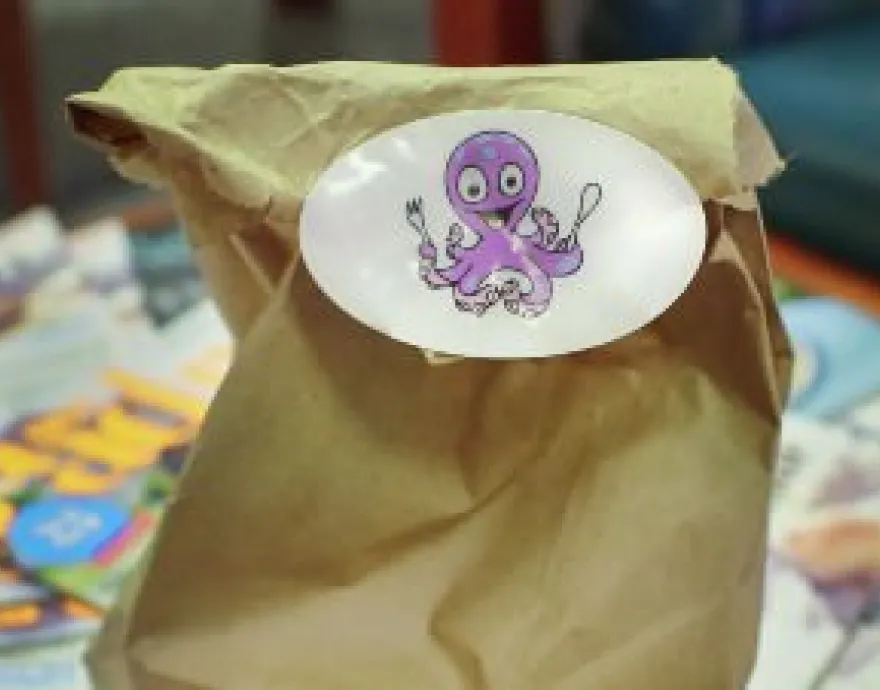
When Kristin Brammer and the other nurses at the children’s oncology and sickle cell anemia clinics heard about the summer meals program, they reached out to Debbie to find out how they could participate. Because kids in the oncology clinic have hyper-sensitive immune systems, going down to the hospital cafeteria to grab a free summer meal would be too much of a risk to their health. And the children receiving treatment in the sickle cell clinic often can’t make it down to the cafeteria when summer meals are available because they must sit for hours while their blood is drawn and replaced with donor blood. Before the summer meals program, the nurses kept snacks on hand that they could give the kids in need. But it was never enough. Now that the program is up and running, meals are delivered to the clinic to serve both those kids and their brothers and sisters that sit in the waiting room — because parents can’t afford babysitters on top of healthcare costs.
“It gives parents the opportunity to stay with their children instead of leaving them in a busy clinic.”
None of this would have been possible without support from the senior leadership, people like Anton Gunn, Brad Masteller and Dr. Susan Johnson, who recognize both the challenges faced by families in need and the greater responsibility the hospital has to the people of Charleston. Each of these leaders echoed the sentiment that hospitals can’t just be a place to treat the sick, and that families should never have to choose between medicine and food for their kids. These leaders envision a new role for the hospital in society. In this role, hospitals are a place that people count on when they are sick, and at the same time, these institutions use their social capital and financial capabilities to improve society in any way that they can. In this case, it’s by providing a free meal to any child that needs one during the summer.
Where does No Kid Hungry come into this? Debbie had a direct No Kid Hungry connection because of our longstanding partnership with her employer, Sodexo. When they learned about Debbie’s idea, the Sodexo Foundation connected her with No Kid Hungry. With help from another corporate partner, Arby’s, we secured funding for MUSC to create promotional materials about the summer meals program to display on campus, and funding to develop a case study to educate other hospitals on this process. At No Kid Hungry, Debbie found experts she could come to for advice, but just as important, we began documenting this whole process so that we can replicate summer meals programs in hospitals across America.
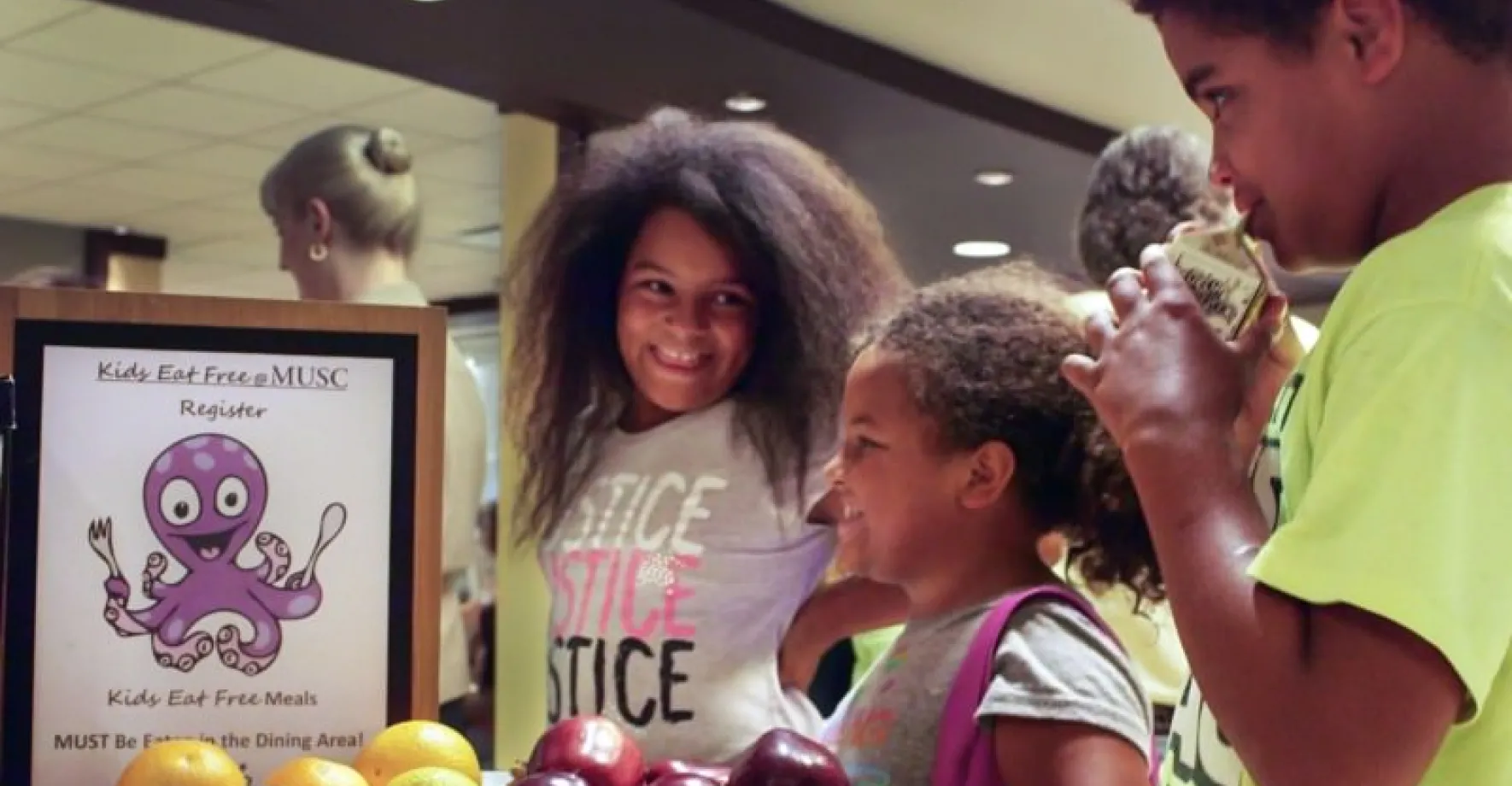
You can count the number of American hospitals with free summer meals for kids on just one hand. The untapped potential for a hospital to serve food to a community’s children is tremendous. It’s complicated. It’s different for each community. But it’s possible. And with the help of No Kid Hungry, hospitals across the country could do the very same thing.

